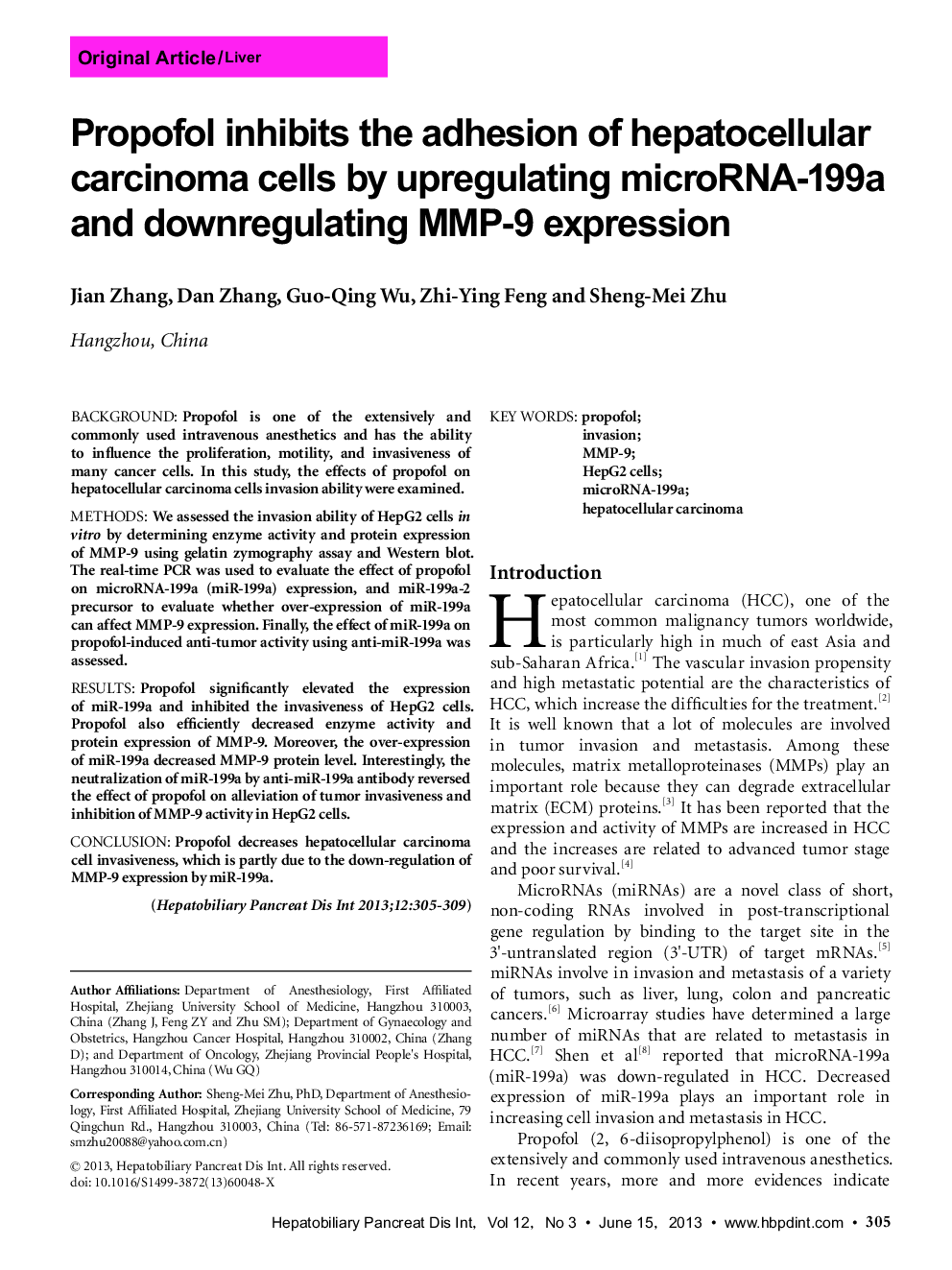| کد مقاله | کد نشریه | سال انتشار | مقاله انگلیسی | نسخه تمام متن |
|---|---|---|---|---|
| 3337302 | 1213793 | 2013 | 5 صفحه PDF | دانلود رایگان |

BackgroundPropofol is one of the extensively and commonly used intravenous anesthetics and has the ability to influence the proliferation, motility, and invasiveness of many cancer cells. In this study, the effects of propofol on hepatocellular carcinoma cells invasion ability were examined.MethodsWe assessed the invasion ability of HepG2 cells in vitro by determining enzyme activity and protein expression of MMP-9 using gelatin zymography assay and Western blot. The real-time PCR was used to evaluate the effect of propofol on microRNA-199a (miR-199a) expression, and miR-199a-2 precursor to evaluate whether over-expression of miR-199a can affect MMP-9 expression. Finally, the effect of miR-199a on propofol-induced anti-tumor activity using anti-miR-199a was assessed.ResultsPropofol significantly elevated the expression of miR-199a and inhibited the invasiveness of HepG2 cells. Propofol also efficiently decreased enzyme activity and protein expression of MMP-9. Moreover, the over-expression of miR-199a decreased MMP-9 protein level. Interestingly, the neutralization of miR-199a by anti-miR-199a antibody reversed the effect of propofol on alleviation of tumor invasiveness and inhibition of MMP-9 activity in HepG2 cells.ConclusionPropofol decreases hepatocellular carcinoma cell invasiveness, which is partly due to the down-regulation of MMP-9 expression by miR-199a.
Journal: Hepatobiliary & Pancreatic Diseases International - Volume 12, Issue 3, 15 June 2013, Pages 305-309